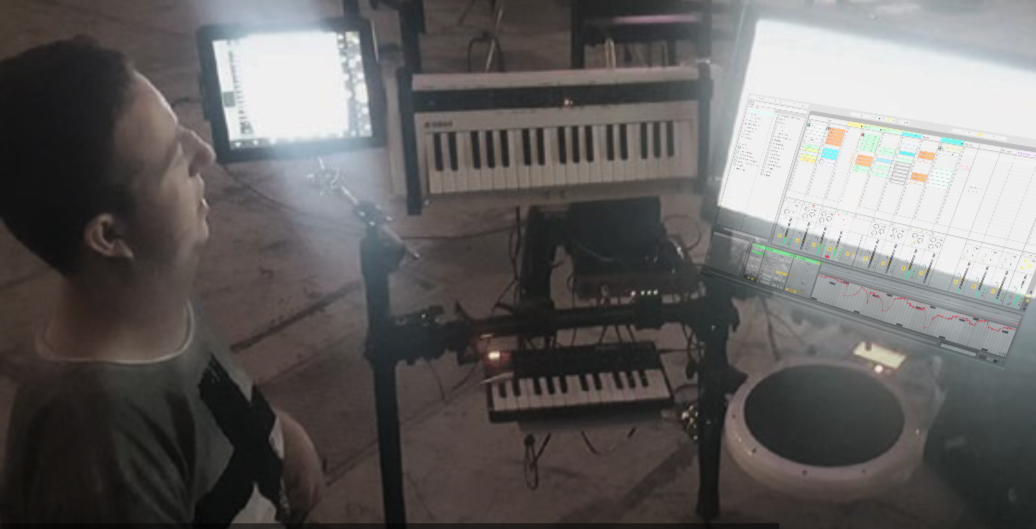
Abstract
Loopfree is a wireless button control system for music software Ableton Live that allows a musician to freely loop sounds in live performance without needing to use a mouse, keyboard or touchscreen. It was developed in collaboration with Tim Palm, a Disabled musician who can’t use his hands or feet to control his instruments in the traditional way.
Description
Loopfree is a wireless button control system for music software ‘Ableton Live’ that allows a musician to ‘freely loop’ sounds in live performance without needing to use a mouse, keyboard or touchscreen. It was developed as part of the MTFLab program at Music Tech Fest Stockholm in September 2018 at KTH. It is a collaboration between Tim Palm (aka DJ Arthro), Vahakn Matossian and Tim Yates.
It was developed specifically for Disabled musician Tim Palm, to give him more freedom and flexibility of musical expression when he performs. Palm isn’t able to use his hands, arms and legs to control his instruments in the traditional way. Instead he uses his nose, tongue and lips. This has been very successful for him in general, but there have been significant limitations to how he could control the looping functionality of his software. In particular the timing constraints in using a looping system with ableton live.
Loopfree releases him from those constraints by providing a wireless four button interface specifically designed with his access needs in mind, meaning that he can improvise in real time, free from wires, touchscreens and creative barriers. This complex integration with a simple and adaptable design opens up the world of live looping not only for Tim, but for everyone.
The system has been designed with adaptability in mind, meaning that a variety of different physical interfaces could be used with the same functionality. For example a guitarist can put the interface on the body of the guitar, or a person in wheelchair can put the buttons wherever needed, being perhaps the neck, elbow or feet. The only limiting factor is the imagination.
We’re convinced that this project will be useful for many musicians both with and without access issues and so we’re exploring routes to commercialising it. These include creating complete packaged versions or spin- off technologies that might appeal to a wider market. There’s also the possibility of making DIY kits for people to adapt the technology to their own accessibility requirements.
Subsequent to its initial development, loopfree went on with the prestigious KTH Innovation Music Tech Challenge and we’ve been exploring potential possibilities for the project since then.





